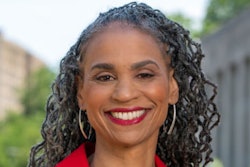Although the news cycle has been dominated by the Biden administration’s student loan forgiveness program and its fate at the U.S. Supreme Court, the Department of Education’s recent revisions to income-driven repayment (IDR) plans may be far more significant in the long run.
 Dr. Robert Kelchen, professor and head of the department of educational leadership and policy studies at the University of Tennessee, Knoxville
Dr. Robert Kelchen, professor and head of the department of educational leadership and policy studies at the University of Tennessee, Knoxville
With IDR plans, student loan recipients’ monthly payments are based on their incomes, instead of being set at a fixed amount. As part of the new rules, payments for undergraduate borrowers would be sliced in half, from 10% of discretionary income to 5%. Discretionary income will also be redefined so that less of a borrower’s income counts.
“This is a much more generous system for undergraduate students,” said Kelchen. “Many will end up paying less on their loans.”
The changes are likely to be particularly helpful for women and minoritized borrowers, who are more likely to be enrolled in IDR programs, according to Dr. Daniel A. Collier, an assistant professor of higher and adult education in the department of leadership at the University of Memphis.
“We believe that it’s due to the fact that women and minority borrowers are likely to have more debt, but also more likely to be underpaid than white men,” he said.
Under the new rules, borrowers who have $12,000 or less in debt would have their loans cancelled after 10 years of payments, even if their payments are $0. According to Collier, the borrowers most likely to fall into this group are those who have stopped out. This category of borrowers has had a particularly hard time with student loan debt because, although they owe a balance, they do not have a credential that would help them earn more.




















